#growing up queer in australia
Explore tagged Tumblr posts
Text
Growing Up Queer in Australia - edited Benjamin Law
Rating: ⭐⭐⭐⭐⭐
‘No amount of YouTube videos and queer think pieces prepared me for this moment.’ ‘The mantle of “queer migrant” compelled me to keep going – to go further.’ ‘I never “came out” to my parents. I felt I owed them no explanation.’ ‘All I heard from the pulpit were grim hints.’ ‘I became acutely aware of the parts of myself that were unpalatable to queers who grew up in the city.’ ‘My queerness was born in a hot dry land that was never ceded.’ ‘Even now, I sometimes think that I don’t know my own desire.’ Compiled by celebrated author and journalist Benjamin Law, Growing Up Queer in Australia assembles voices from across the spectrum of LGBTIQA+ identity. Spanning diverse places, eras, ethnicities and experiences, these are the stories of growing up queer in Australia.
‘For better or worse, sooner or later, life conspires to reveal you to yourself, and this is growing up.’
With contributions from David Marr, Fiona Wright, Nayuka Gorrie, Steve Dow, Holly Throsby, Sally Rugg, Tony Ayres, Nic Holas, Rebecca Shaw and many more.
I am privileged enough to have grown up with the internet, with information about queer people and queer identities so difficult to hide, such that even at a christian school, I was able to find the words to describe myself almost as soon as I recognised those parts of myself.
Even so, hearing first-person accounts of Australian queer people, like me, dealing with Australia's culture and biases, made me felt seen in a way I don't think any other medium could have.
Growing Up Queer in Australia portrayed all different aspects of queerness, from celebration and pride to rejection and heartbreak. It was a wonderful reflection of thoughts and feelings I've had, as well as those I would never have considered to be part of the queer experience.
I really appreciated the range of queer identities represented in the book; from lesbian and gay to queer, every letter of LGBTQ+ was represented. I do wish we got more stories from the '+' part of the queer community, but I am glad that Growing Up Queer does make an effort to include more than just gay and lesbian authors. I especially appreciated the range in gender identities and presentation of the authors, including both masc- and femme-presenting lesbians and their struggles, trans people who realised both early and late in life, people who had strong gendered feelings that didn't neatly fit into these boxes.
I also welcome the intersectionality present in Growing Up. As someone who is white and able-bodied, it was eye-opening to read how deep the authors' queerness was related to other marginalised parts of their identity such as disability and race. I appreciated the variety in Australian class and location represented in the book, including rural, small towns, suburban and city perspectives. It made me really happy in one story to notice where they were from and say "Hey, that's near me! That's my community!"
As Benjamin Law addresses in the wonderfully written foreword, I am very glad that the title chosen is 'Growing Up Queer in Australia.' The use of 'queer' feels very inclusive and tells me Law is not shying away from the tougher parts of queer identities in an effort to make the book more marketable.
For me personally though, trying to digest the a-spec parts of my identity has been a big part of my personal discovery, and for this reason I would loved to have seen asexual and aromantic representation. It seems from personal anecdote to make up a surprisingly large section of the lgbtq+ community, so it was a bit disappointing that with dozens of authors involved, there was not a single a-spec author.
In general, I was a little disappointed there weren't many authors from the '+' part of lgbtq+, such as a-spec, non-binary and genderfluid. There are some identities that feel marginalised even within the queer community and this book could have been a good opportunity to bring light to them. I would have especially loved to see 'contradictory' identities such as he/him lesbians.
I am still giving 5 stars because I understand when compiling and publishing a book like this, there will always be people who felt left out by it, and I can see and appreciate the effort that has gone into diversity and intersectionality in Growing Up Queer.
Growing Up Queer, through its diverse collection of stories, reaches out and says, You are not alone. There are others who have been in the same situation.
#book review#growing up queer in australia#benjamin law#non-fiction#nonfiction#short stories#essays#memoir#lgbtq books#lgbtqia#australian books#anthology#5 stars#endymion#book reviews#book recommendation#book recommendations#book reccs#book blog#books#bookblr#booklr#reading#book reading
6 notes
·
View notes
Text
Happy International Lesbian Day! Here's some super brief book recs to celebrate
Books dealing with love, loss, longing and abandonment
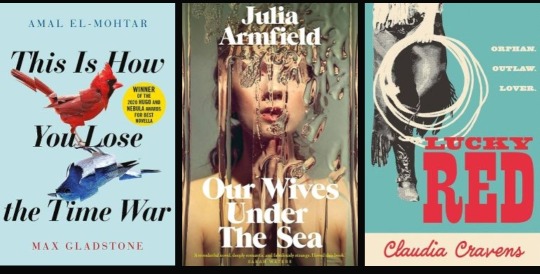
This is How You Lose The Time War is a short but beautifully written epistolary novel between two agents on opposite sides of a time war as they slowly fall in love.
Our Wives Under the Sea is one of the most beautifully written debuts I've ever read about a woman whose wife comes home wrong after they thought she'd died at sea and how it feels to grieve the loss of someone who's still in your home.
Lucky Red is a western novel about a young girl working in a brothel who meets her first female gunslinger and falls head over heels for her, and the consequences that come with loving dangerous people.
Body horror galore
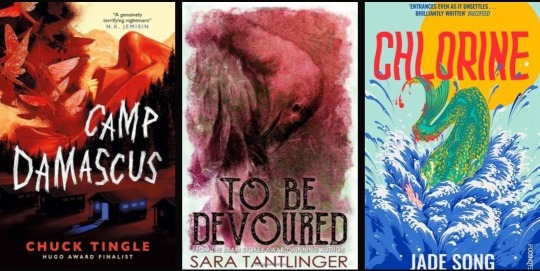
Camp Damascus is about a young woman living in a super conservative christian town built around the worlds most successful conversion camp and the horrors that are uncovered there when praying the gay away fails.
To Be Devoured is about a woman whose fascination with the local vultures turns into obsession and the urge to know what carrion tastes like overtakes her life and leads her down stranger and stranger paths.
Chlorine is about a girl whose entire life revolves around being a competitive swimmer, and how abuse, neglect, and obsession with being the best takes its toll on the young women caught up in these destructive cycles.
Flawed character studies
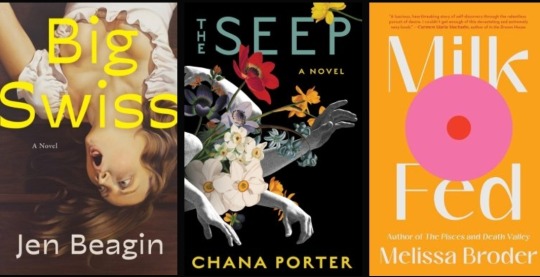
Big Swiss is about a woman who has a kitchen floor reset in her 40s, moves away and starts a new life as a transcriber for a sex therapist and becomes obsessed with one of his clients before inserting herself into this poor woman's life.
The Seep is a speculative sci-fi set in a future where there's been a quiet alien invasion that has given people the ability to make almost any changes to their own bodies and what that world feels like to someone who doesn't want to partake.
Milk Fed is about a woman in therapy who feels cut off from almost everything until she meets another woman who triggers in her a melding of sex, hunger, and religion and where that takes her. Huge trigger warnings for ED content. It gets tough, y'all.
Fantastical wlw books
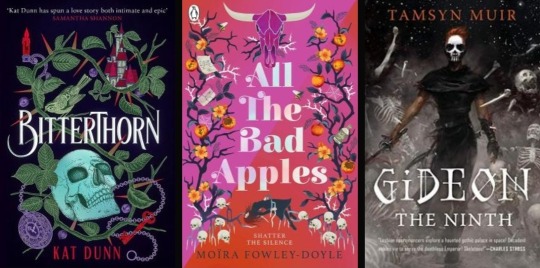
Bitterthorn is an amalgamation of fairytales retold as a slow burn sapphic love story between a sad young girl from a cursed land and the evil witch who takes her as a companion in the latest of the generational sacrifices made to appease her.
All the Bad Apples may be set in contemporary Ireland but it is a fairytale following a young girl as she travels across the country looking for a sister she refuses to believe is dead and the people she meets along the way.
Gideon the Ninth needs no introduction on this site but for the sake of formatting - lesbian necromancers in space who find themselves in an isolated murder mystery plot. It's not a romance but it is a love story and this series will change your life if you let it.
Translated novels
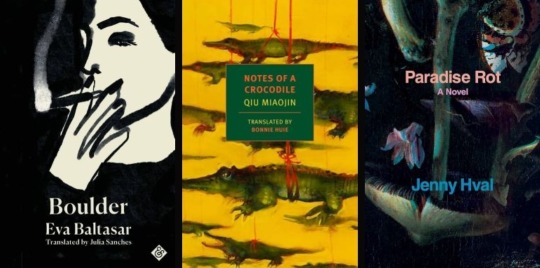
Boulder is a short character study following a free spirited woman when she accidentally settles down with the woman she loves and how love and resentment can take up the same space in your chest when life doesn't turn out the way you hoped it would.
Notes of a Crocodile is a cult classic coming of age story about queer teens in Taipei in the 1980s. It was written in the 90s so please keep that in mind if you choose to read it.
Paradise Rot is about an international student studying in Australia and her growing obsession with her housemate as they share a space that allows no privacy. I've never read anything that feels stickier.
#international lesbian day#book recs#long post#maybe a too long post#but i had the recs so here we are lol#this is how you lose the time war#our wives under the sea#lucky red#camp damascus#to be devoured#chlorine#big swiss#the seep#milk fed#bitterthorn#all the bad apples#gideon the ninth#boulder by eve baltasar#notes of a crocodile#paradise rot#i ran out of tags 😭😭😭#booklr
1K notes
·
View notes
Text
The state of intersex studies
So we recently read the first part of Malatino's Queer Embodiment for Intersex Book Club. It'll be a while until the summary gets posted because we have a backlog (whoops) but this book makes me want to rant.
Having now read a bunch of intersex studies books for the book club has made me acutely aware of HOW MUCH of (American) intersex studies is the same five topics over and over again:
The life of Herculine Barbin
Fuck John Money
Fuck Middlesex
The rise and fall of ISNA + Fuck DSD terminology
Caster Semenya
For the record, Malatino only covered four of these five 🙃. It's honestly getting tiring seeing the same five topics over and over again when there is SO MUCH else that could be talked about.
I'm tired of hearing about ISNA The repetitive focus on ISNA is particularly grating to me because the total amount of text I have head on ISNA's history is greater than the total amount of text I have read on the histories of all other intersex advocacy organizations. 😬 The USA did not invent intersex advocacy and isn't even a world leader in intersex activism (sorry, American friends).
The only text I know of that chronicles the history of a non-ISNA intersex advocacy organization is Swarr's Envisioning African Intersex where she talks about the history history of Sally Gross and Intersex South Africa (and gives a brief shout-out to Julius Kaggwa and other Ugandan activists). Which is weird because...
IGM is banned in Greece! 🎉 And Spain! 🎉 And Portugal! 🎉 And Iceland! 🎉 And Brazil!! 🎉 And Chile! 🎉 And Uruguay! 🎉 There are partial bans on IGM in India and Australia. So why haven't I seen a single book chapter on the history of intersex activism in any of these countries? 🧐 What can we learn from these successful campaigns???
I'm tired of hearing why ISNA failed when I want to be learning how OII-Europe and similar organizations have succeeded. 🫤 There have been more than two people in intersex history Herculine Barbin isn't the only intersex person from history and I would honestly like to see more on other famous intersex people from history, e.g. Isidor of Seville, Helena Antonia, Elen@ de Céspedes, King Francis II of France, King/Queen Christina of Sweden, Princess Ismat al-Doulah of Persia, Sa Bangji, Im Seong-gu, Xie Jianshun, Fernanda Fernández, Gottlieb Göttlich, Karl Dürrge, Karl M. Baer, Lili Elbe, Clémentine Delait, and Annie Jones (Just to name a few that *I* know of!)
Caster Semenya isn't the only intersex athlete to have experienced discrimination! She wasn't even close to being the first! Maybe give some airtime to Maria José Martínez-Patiño, Foekje Dillema, Ewa Kłobukowska, Erik Schinegger, or Witold Smętek? Or even contemporaries, like Duttee Chand or Margaret Wambui?
I'm *really* tired of hearing about Middlesex The repeated critiques of Middlesex have also gotten tiring. The book sucks. This is not news. What I'm not seeing is literary scholars engaging with the growing body of books written by intersex authors like the works of Rivers Solomon, Bogi Takács, Alec Butler, or KOKUMO. And don't tell me they're not "literary" or "notable" enough, Butler has a Governor General's Award and Takács has a Hugo.
Intersex Studies can do so much more! Intersex studies is a young field. I know this. I just wish I'd see more variety making into book format? It's weird seeing the same things get repeated exhaustively when there's so much that doesn't seem to have gotten any attention? Like in book club we talked about intersex people in mythology for a bit and it made me realize we haven't seen anything specifically on this subject and there is so much that could be talked about there. 😯
My rant ends here. If anybody here is looking for a research topic I hope I've made the point that there's a lot of fertile ground that has not been covered when it comes to intersex! 💜 (If you wind up writing anything along these lines please do send it my way! 💜)
112 notes
·
View notes
Text
Returning to say everyone should watch Invisible Boys.
Really captures most experiences of growing up queer in rural Australia or at least mine and my friends experiences.
34 notes
·
View notes
Note
This is gonna sound VERY random, but do you know if Alexander loved or "stanned" any famous women during his time in the way that Gay men love their female Gay icons (think the way that Gay men love Judy Garland.) Like if Alexander were alive today I could honestly see him stanning Jennifer Coolidge lol.
Alexander was a fan of certain people—we know Thettalos was his favorite actor, for instance—BUT what the asker refers to is extremely time- and culture-locked.
In fact, it’s one of the primary reasons I resist using the term “gay” for Alexander. It brings to mind modern gay (male) subculture, which is highly anachronistic for Alexander…or the ancient world at all.
Why “Gay” Is a Problematic Term Applied to Antiquity
Alexander was not a gay man.
He was an ancient elite male who, like many ancient Greek men, appears to have swung both ways, but formed his primary emotional attachment to his childhood friend, Hephaistion.
I am not splitting hairs or being homophobic, or any of a dozen other possible complaints. The assertion that “Gay is gay is gay,” as a journalist long-ago insisted when she interviewed me in the wake of Oliver Stone’s Alexander, is dead-wrong.
That a man can be sexually attracted to other men (or a woman to other women)—primarily, sometimes, or only occasionally—seems to be as old as the hills. But how that’s understood … THAT is cultural. When it’s repressed, a counter-culture may grow up around it. Part of coming-out involves learning to participate—speak the language—of a new subculture. That may include a least pretending to certain expected tropes. A friend told me, some years ago, “I really hate Lady Gaga’s music, but if I say so, I might lose my gay card.” He was mostly joking, but also not.
A fairly specific gay male culture exists in the US, and Canada. This culture sometimes overlaps with gay male culture in other parts of Europe, including the UK, or other anglophone countries such as Australia and New Zealand. Some of that may overlap then with Spanish- or Portuguese-colonized South America, but by no means all. And it can be radically different from gay male culture in Asia, never mind Africa, or Arab-speaking countries. Etc.
We can’t point to any such gay subculture in ancient Greece because homoerotic behavior was widely accepted, at least among the upper classes. If there was any gay subculture, it was so closeted, we have no evidence for it. I’m inclined to think there was none precisely because it didn’t need to go in the closet in the first place. It was simply “elite” culture. Subculture signaling is created as a means to telegraph belonging to others “in the know” when it’s otherwise unsafe, or at least not fully acceptable, to be ____.
I hope this illustrates why the question doesn’t fit Alexander, but in a way that’s educational and enlarging, rather than a smack-down. The latter is not how I mean it, even while I do think it important to recognize cultural variance and why “gay” shouldn’t be used for the ancient world (even humorously, tbh). “Queer” is, I think, loose enough (however modern) to escape some of the assumptions. Yet the caution still remains.
If I can point to a bit of pop-culture to illustrate what I mean, consider the “Gay or European?” clip from Legally Blonde. It’s funny because it pokes fun at American assumptions. It’s also funny because, of course, the answer is “Both!” That doesn’t, however, negate the cultural lesson embedded.
youtube
#asks#Alexander the Great#Was Alexander the Great gay?#Why “gay” is a problematic term for the ancient world#Classics#ancient Greece#Ancient Macedonia#ancient homoeroticism#Hephaistion#Hephaestion#alexander x hephaestion#gender studies in ancient Greece
20 notes
·
View notes
Text
2025: week 9
sportsball: 1 ncaa women's basketball conference tournaments. that's right, i'm about to become a basketball gay. i set myself a goal, i gathered intel at con on how to go about it, and this is what's happening. i have a notion database. i am going to learn.
music 1: alex layhe at the evelyn. sometimes going along to see people whose music you're only loosely familiar with is the best idea.
music 2 / lady gaga 1: mayhem. i don't love this. this thing happened over the last ten years where she was so far ahead of the curve but kept making the same music (religion, medical metaphors, celebrity) over and over and along the way everyone overtook her. there are a couple of songs i fuck with, but while she was off doing adult contemporary or whatever i stopped being able to take her voice seriously as a pop singer.
lady gaga 2: lady gaga asmr for w. i do, however, entirely fuck with this. the haircut portion caused me physical pain from laughing so hard, but it's also pretty decent as an asmr video. incidentally, the nephew tonight was like, i listen to asmr when i'm watching animal crossing tutorials so i don't get bored, which is, uh, alarming.
lady gaga 3: 'no more slay', with bowen yang on snl. taking this one with me to my deathbed.
tv 1: the newsreader, season 3 (abc tv). you're the real one, helen norville. idk, the final moments to this feels so precious to me, to see something set in what's pretty widely acknowledged as a horrifically backwards era in this country end on such a hopeful note without devolving into pure sentimental glop. it didn't feel like an alternative reality, but a nod to the fact that queer people didn't just pop up out of nowhere in 1995 in australia, that this was the first time people were brave enough to start talking about mental health issues in a serious way. we're pretty bad at looking back here, perpetually cringing at even our most recent history, but i think we're getting better at it, or maybe it's just me that's trying to grow out of that reflex, but i was four in 1989, and this show felt like a place i lived in that didn't feel embarrassed or embarrassing for once.
food 1: el columpio, johnston street fitzroy. after all the good mexican in california, i have set myself the challenge to hit the top of the list places in melbourne to see what compares. so far: fucking winner.
food 2: the egg video from a few weeks back has enlightening, but this week i have taken it to a whole new level with a infrared temperature gun. i might actually be cooking the best eggs on earth right now.
13 notes
·
View notes
Text
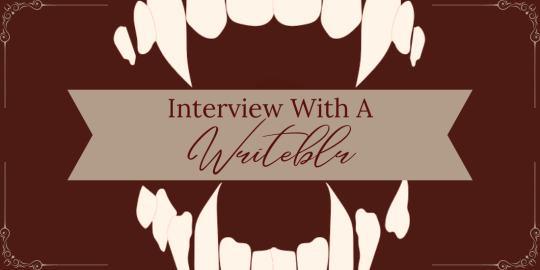
INTERVIEW WITH A WRITEBLR — @albatris
Who You Are:
Logan || It/its
Hello! I'm a queer horror novelist and friend to cats from South Australia! I spend my time making art of all sorts, especially relating to my experiences of queerness and psychosis.
What You Write:
What genres do you write in? What age ranges do you write for?
Comedy, fantasy, horror, and sci-fi. Young adult and adult.
What genre would you write in for the rest of your life, if you could? What about that genre appeals to you?
Horror! There's such rich ground to explore in stories of horror and psychosis when you're not an ableist prick about it! There are unique and valuable stories to be told in the overlap here and I'm having a wonderful time weaving my own experiences of schizotypal personality disorder into my horror writing. It's the closest I've come to being able to share my inner world with others :)
What genre/s will you not write unless you HAVE to? What about that genre turns you off?
Historial fiction! I don't have anything against the genre, but it's just not my cup of tea. I'd never feel like I'm nailing the time period due to the sheer amount of nuance and detail that I'd need to have on hand… major props to historical fiction writers, you are stronger and more organised writers than I
Who is your target audience? Do you think anyone outside of that would get anything out of your works?
My target audience ranged from YA to adult, depending on the work in question. I want to speak to primarily people who are feeling disconnected and alone… I guess you could say my target audience is just myself of the past? I'm writing the stuff I needed to read, the stuff that would have made me feel seen and loved and understood. Anyone else is welcome along for the ride though ^.^ I hope others who don't see themselves in my work would catch a glimpse of a different way of understanding the world and be able to empathise and understand, and maybe have a lot of fun with it, too!
What kind of themes do you tend to focus on? What kinds of tropes? What about them appeals to you?
I love all that cheesy goodness about the power of friendship and the human capacity for kindness and connection! My stories, however otherwise horrifying or heavy, tend to come back to these at their core. My works all focus heavily on mental illness, neurodivergence and disability. I also have a soft spot for bendy realities, body horror, paranoia and hiveminds.
What themes or tropes can you not stand? What about them turn you off?
I cannot stand "the whole thing was just a delusion all along! none of it was ever real!" or "ooh they thought it was psychosis but it turns out it was ~magic~! see, our protagonist isn't CRAZY like those actually crazy people!" style plot twists. They're lazy and ableist! In general, I have zero tolerance for anything that demonises psychosis or uses psychosis only as an edgy plot twist.
What are you currently working on? How long have you been working on it?
I have two main projects, "All the Doors are Open", a YA fantasy/horror about the collapse of reality, and "A Rental Car Takes a Left Down Rake Street and Disappears" a paranormal horror about a vampire hivemind. I've been working on some variation of ATDAO for eight years, and Rental Car is a baby by comparison, and was only created last year.
Why do you write? What keeps you writing?
I write for fun! As much as I love to connect with others and allow them a glimpse into my understanding of the world, I primarily write because I just like to have a good time hahaha. It's something I love to dabble in and explore, something I love to wander through, something I keep coming back to over and over. I just feel a pull to it :D
How long have you been writing? What do you think first drew you to it?
I've been writing since I was around six years old! Growing up as a kid with undiagnosed psychosis and delusions, I had a lot of funky weird ideas about reality. I quickly found my reality didn't match with those around me and often turned to fiction writing as a means to express myself in a way others found more "palatable". It's a way for me to open the door to communication!
Where do you get your inspiration from? Is that how you got your inspiration for your current project? If not, where did the inspiration come from?
All kinds of places! Songs, dreams, daydreams, personal experience, conversations… I have a very chaotic brain, I take in a lot of odd information and it all lays the foundation for odd ideas to grow!
What work of yours are you most proud of? Why?
I'm most proud of Rental Car at the moment! It was my first foray into proper full-on horror and my first time writing a specifically schizotypal protagonist like myself, and people have responded with enthusiasm to both! It's become a passion project I really adore and I'm proud of myself for taking the plunge and starting it :D
Have you published anything? Do you want to?
I'd love to publish in the future!
What part of the publishing process most appeals to you? What part least appeals to you?
I'm not sure what appeals to me the most, but marketing appeald to me least hahaha. I'm not really a big presence on social media and I hate promoting myself. I just want to be a hermit. I'm not cut out for marketing myself :P
What part of the writing process most appeals to you? What part is least appealing?
I love editing! I love revision! I love wandering through this little garden I've written and pruning and polishing it. It's my favourite part of the process :D I don't have a least favourite part, at least not off the top of my head.
Do you have a writing process? Do you have an ideal setup? Do you write in pure chaos? Talk about your process a bit.
I have no setup! No schedule! I write when I feel like it and stop the moment I'm not having fun anymore. This has increased my productivity and enjoyment tenfold, as well as improve the quality of my work!
Your Thoughts on Writeblr:
How long have you been a writeblr? What inspired you to join the community?
Around 8 years! I don't remember what initially inspired me to join.
Shout out some of your favorite writeblrs. How did you find them and what made you want to follow them?
@tracle0, a friend and pal, who has some of my favourite worldbuilding of all time and such incredible characters! I've been following them for a long time now and love hearing their thoughts :D
What is your favorite part about writeblr?
I love the creativity and enthusiasm! People have such wonderful brains and I love being able to hear people talk about their work with such passion and adoration!
What do you think writeblr could improve on? How do you think we can go about doing so?
I think… remembering that writeblr itself is not a hivemind! I see a lot of folks lamenting that they feel ignored by "the community" or that the community is dying, and I think a lot of people see writeblr as a huge monolith. It's not! People gotta focus more on finding a few good friends and a handful of works to be genuinely invested in, rather than trying to interact with the whole of the (ginormous!) community, and expecting the whole community to interact with them. Writeblr is a description of a type of blog, and it's incredibly diverse and complicated and broad! You won't vibe with everyone and it's not so much like an official club you join but a shared experience.
How do you contribute to the writeblr community? Do you think you could be doing more?
Man, I'm just vibing. I'm invested in a collection of works I try to keep up with, and I try to keep up with the little circle of writeblrs I'm involved with! Reblogging and getting excited. I'm also often that person who gets bored and goes "heyyyy I'm bored, does anyone have an oc I can draw"… I love doing art for people! Could I be doing more? Probably! But also, I'm not meant to be everything to everyone.
What kinds of posts do you most like to interact with?
I don't have a preference!
What kind of posts do you most like to make?
Rambles, excerpts and art!
Finally, anywhere else online we may be able to find you?
I'm just here, babey! And albatris on NaNoWriMo, too. And I guess if you like you can hit me up for my discord, I help run a small writing server!
32 notes
·
View notes
Text
This 14th of February you should listen to Love & Luck
Complete Article under the cut
The 14th of february is coming in just a few hours and as people go to flowers & chocolate shops (or order them online ’cause you know) to celebrate love, here I am single and listening to podcasts, not as alone as the celebration might make me look.
On Valentine’s day we get too focused on celebrating just 1 kind of love: heteromantic / sexual that we sort of forget about the others. That’s why you should listen to Love and Luck:
“Love and Luck is a fictional radio play podcast, told via voicemails and set in present day Melbourne, Australia. A slice of life queer romance story with a touch of magic, it follows the relationship between two men, Jason and Kane, as their love grows both for each other and their community.” (loveandluckpodcast.com)
Even if the first episodes center around the development of the romantic relationship between the two leads, as we progress further into the story the love the podcast portrays turns into different shades and shapes: Self-love, familial (blood or chosen), friendships, polyamory, metamour’s relationships, pets and pet parents, even one that transcends space and time. We’re given the whole feast!
That being said, the creators -being queer themselves- do not shy away from talking about the ugly aspects that come from being so. However, the emphasis is always on how through community and the magic of friendship (quite literally) people are able to overcome the obstacles, albeit slowly and maybe scarred for life.
The episodes vary 5–20 minutes with the longest being 54 minutes -since it’s the final episode- .
It’s a love story told through voicemails left by various characters not only to justify the audio format but as a love language between the two leads organically built because of their different sleeping schedules and later co-opted by their friends and family. If you are one for epistolary stories or are trying to write one, this podcast might be a great case study.
The magic aspect is also greatly explored, episodes are spent on the characters rambling about how it works, making fun experiments and debating over the ethics of magical use. Ending up with a fresh but in hind-sight obvious approach: magic is just another tool which you can or not use to harm or do better. The rules of the magic system are therefore more like suggestions.
In the end it will be my go-to comfort media when my grandparents start bothering me about my love-life. You can listen to Love and Luck wherever you get your podcasts (spotify, itunes, youtube, their website, etc.)
#audio drama#audio fiction#fiction podcast#article#opinion article#love & luck podcast#love and luck podcast#queer romance
11 notes
·
View notes
Text
what i read in apr. 2023:
(previous editions) bold = favourite
class, race, & labour
the deputy and the disappeared (usa)
the dystopian underworld of south africa’s illegal gold mines
inside australia’s university wage theft machine
lydia maria child and the vexed role of the woman abolitionist (usa)
gender, sexuality, & intersectionality
the narcissist’s playbook
blurred lines, harbinger of doom
how revenge porn is used to silence dissidents in azerbaijan
queer villains are vital to understanding queer history
politics & current affairs
adrift
the rose-coloured tint on shou zi chew overlooks tiktok’s red flags
“we shouldn’t grow up dreaming that our friends don’t get killed”
how to wash your hands in a war zone (colombia)
why south koreans want the bomb
history, culture, & media
former south korea president’s grandson apologises to victims of gwangju massacre
singapore’s prison without walls made the world sit up in 1960s. how did it fall apart?
honey, i sold the kids
dril is everyone. more specifically, he’s a guy named paul
sudan
keep eyes on sudan (guide/resources)
sudan’s outsider
a plague o’ both your houses: the false dilemma of sudan’s elites
sudan’s coup has shattered the hopes of its 2019 revolution (2021 coup)
188 notes
·
View notes
Text
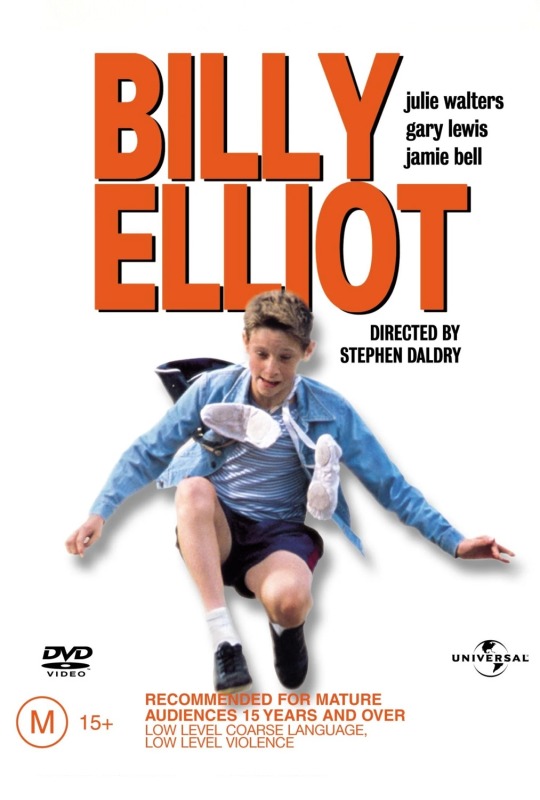
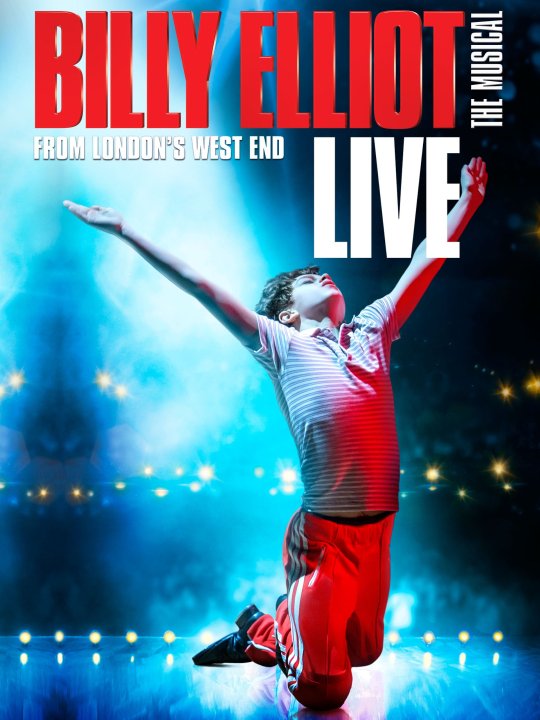
Another zine I want to work on is for Billy Elliot's 25th anniversary next year. I wouldn't say this was my gay awakening, but it's certainly remained a great love given my teen obsession with Jamie Bell and how often it appeared on free-to-air television. It sits alongside But I'm a Cheerleader (1999) and Beautiful Thing (1996) as films that made me feel privileged to have grown up gay when I did.
If you've got something nerdy to say about this film, DM me with it (or add comments to a reblog) the second you finish reading.
The zine would talk about Billy Elliot's 'controversy': the debates about whether it counted as queer, and grooming allegations against Daldry for his sheer proximity to a young actor. It would also include how my crush on Jamie Bell developed over the last twenty-five years. But tbh that's all just filler. What I really want to talk about is how its big, nerdy intertextual references make it media created for us rather than a cishet audience.
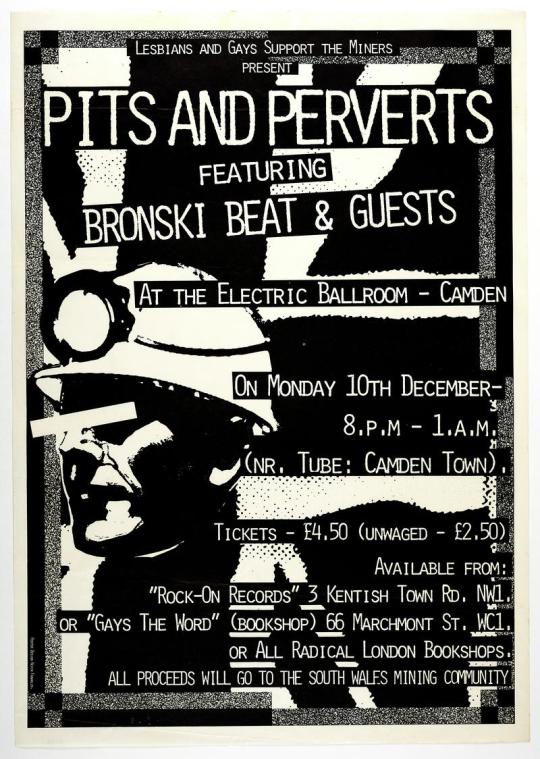
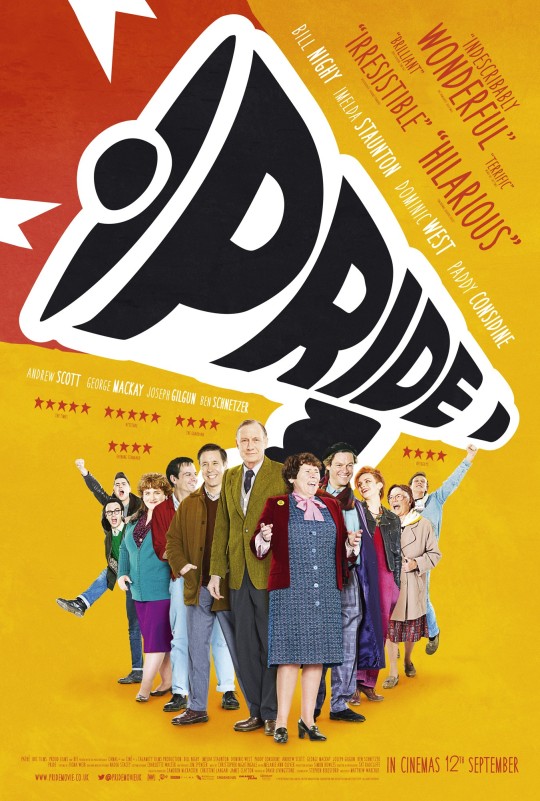
First reference is from history, because why choose the 1984 miner's strike as your setting if your film had nothing to say about their contributions to Gay Liberation? Perhaps a little headcanon, but no less important to highlight this largely forgotten change in Labour's policy-making both in the UK and here in Australia.
And because we don't have a world of time, and because it was a helpful reminder when it came out, we lean on the 2014 docudrama PRIDE. This one follows Lesbians and Gays Support the Miners (LGSM), who crossed prejudices to show their solidarity during the 1984 strike — going as far as holding a club fundraiser featuring Bronski Beats as their headliner.
LGSM's contributions were ultimately refused by the Miner's Union, and yet they left a lasting impression on mining communities and labour unions. LGSM were subsequently joined by hundreds of miners during Gay Pride 1985 who had by then voted to include gay and lesbian rights in their party portfolio. It was the first time a major political party in the West had committed to supporting queer rights.
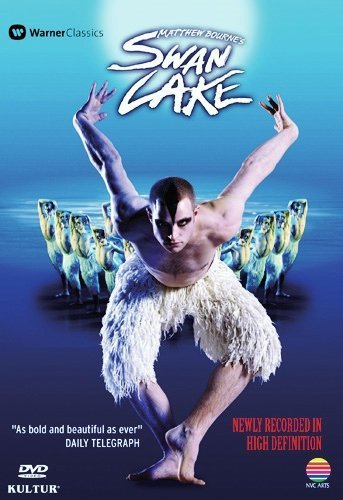
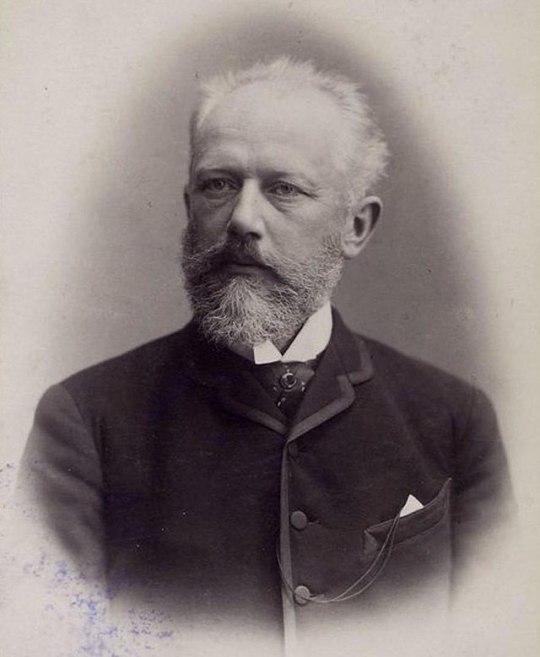
Next we slide hard into Matthew Bourne's Swan Lake, which premiered in 1995. This modern re-queerification of the classic ballet by gay composer Pyotr Tchaikovsky has the prince assume part of the princess's role as he pursues a mysterious Stranger (the swan). Here Bourne goes as far as to replace the entire cast of traditionally female swans with sweaty, bare-chested lads.
The 2012 capture watchable [ here ] stars homosexual hearthrob Dominic North as the forlorn prince.
Now, in Billy Elliot, Mrs Wilkinson recounts the classic tale to Billy as they listen to Swan Lake on the ferry. It's a wonderful scene where Wilkinson begins with reverence and dramatics, but ends with her usual boredom, leaving young Billy both confused and unsatisfied with the plot. To me this echoes the desire among 90s content producers to change how we told queer stories.
In Billy Elliot's closing scene, however, we see a 25yo Billy leap onto the stage as Bourne's Stranger rather than the classic princess (even nerdier than that, we see Bourne's original Stranger, Adam Cooper, playing a 25yo Billy Elliot). You realise in future screenings that the opening scene is also an homage to Bourne's Swan Lake: much as the young prince begins his story in bed, dreaming a swan hottie will save him from becoming a man; Billy begins jumping on his bed, flapping his arms, dreaming of something beyond the life he's expected to grow into.
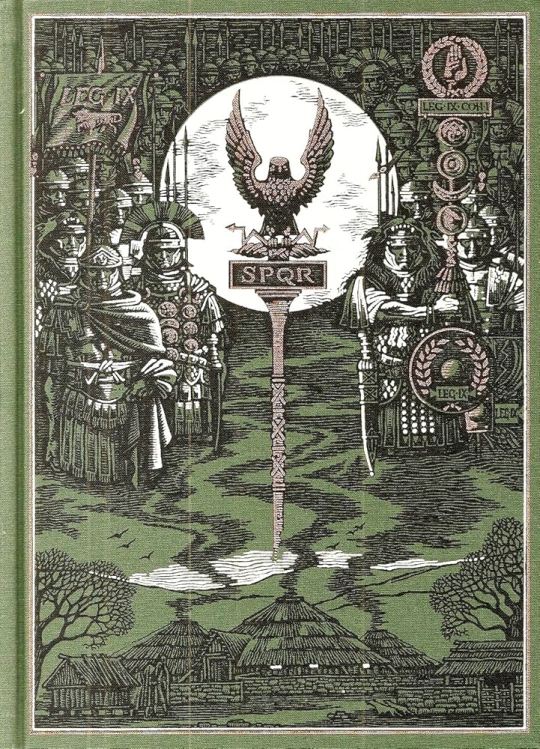
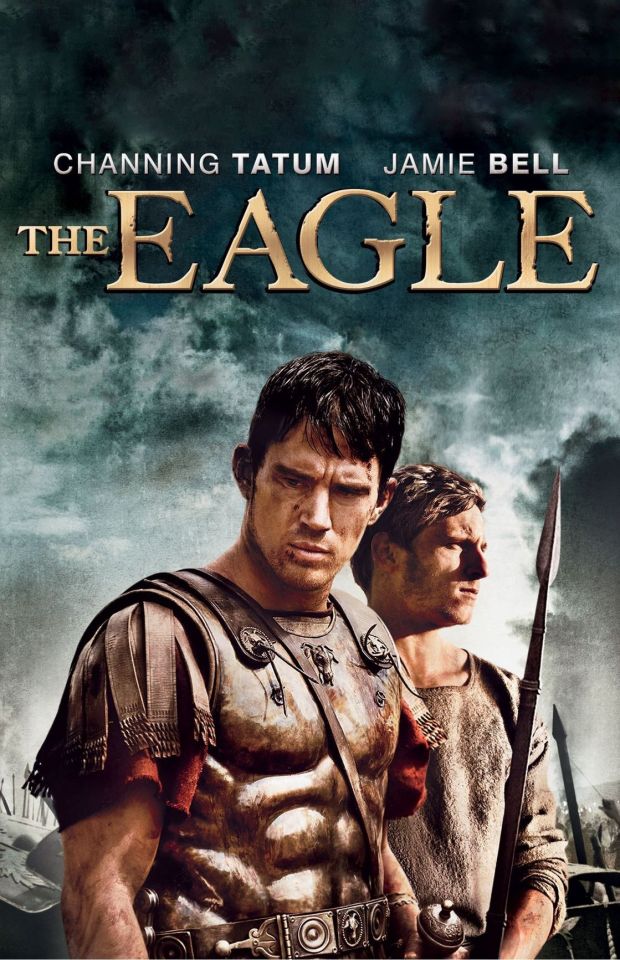
Quick tangent via The Eagle (2011), starring Channing Tatum as Roman legionnaire Marcus and Jamie Bell as his British slave Esca. Now, do we condone slavery? Absolutely not. But we do enjoy watching Tatum and Bell get super clingy as they traip across the countryside in what has to be the most romantic bro film of all time.
Relevance to Billy Elliot? Vague. But hear me out.
The film's based on Rosemary Sutcliff's The Eagle of the Ninth (1954), which ends with Marcus settling down as a farmer with Esca and a Briton wife named Cottia who doesn't appear in the film. Subsequent novels follow the father's ring as it's passed down Marcus's bloodline, meaning they shagged down to produce an heir but implying literally nothing else.
But imagine removing Marcus's wife from the equation altogether (all women, actually), adding 'submission' to the male bonding elements of your film, reprimanding disaster bisexual Channing Tatum for suggesting it's a romance, and then expecting a professional homosexual like me to believe this doesn't count as another gay Jamie Bell movie. That's all I'm saying.
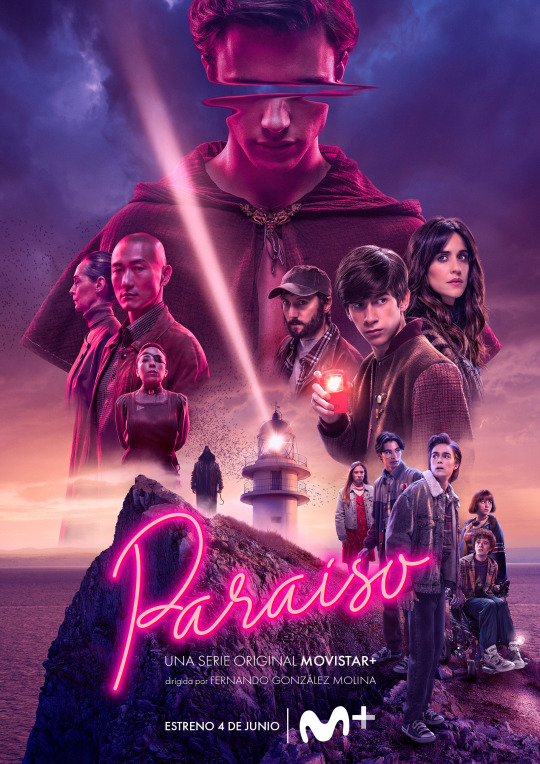
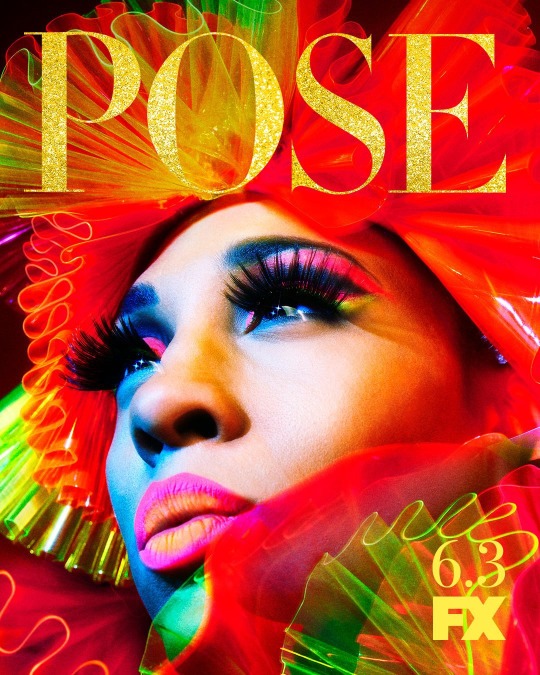
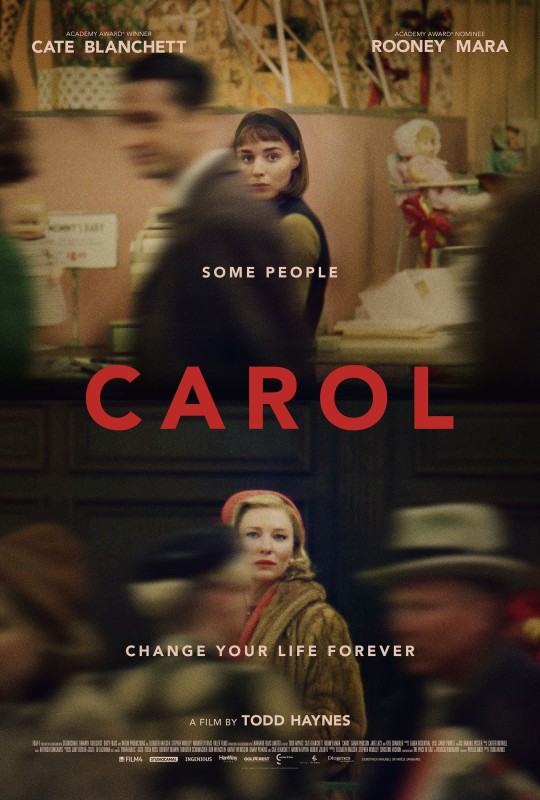
Lastly, I want to talk about Elton John co-writing the musical, and Tom Holland as the most famous Billy. I want to talk about Spanish Billies Pau Gimeno and Cristian López acting together in Paraiso (2021-22). I want to talk about Kate Mara (married to Bell) as Patty Bowes in the first season of POSE (2018-21), and her sister Rooney as Therese Belivet in Carol (2015). I want to talk about so many things.
What would YOU want to write about this film?
#billy elliot#billy elliot (2000)#jamie bell#queer#lgbtiq#gay#film#movie#films#movies#pride (2014)#LGSM#lesbians and gays support the miners#matthew bourne#tchaikovsky#swan lake#matthew bourne's swan lake#dominic north#adam cooper#the eagle (2011)#channing tatum#roman#history#elton john#tom holland#paraiso#pau gimeno#Cristian López#pose#kate mara
16 notes
·
View notes
Text

Into the Mouth of the Wolf by Erin Gough
(2024)
From the Publisher:
Part thriller, part queer romance, Into the Mouth of the Wolf is the stunning, long-awaited new YA novel from the award-winning author of Amelia Westlake.
Dear Iris,
If all goes well I will be in touch by this evening. If you hear nothing, contact Glassy Bay International Travellers’ Hostel and ask after me. Use our real names.
Your Mama xxx
Iris lives on the run with her mother, Rohan. They’re travelling to escape the earthquakes, though of course that’s impossible. And they’re being followed. One day, Rohan insists Iris repeat the phrase in bocca al lupo: into the mouth of the wolf. The next day, Rohan's vanished, leaving no clues about where she’s gone besides a contact in an unknown town. Entirely alone and fearing the worst, Iris reaches out to a stranger for help.
When Lena gets Iris's message, she's busy panic-studying for year 12 and helping run her family’s hostel. She’s intrigued by Iris, and can’t deny there’s a spark between them – but she’s also worried. A dead body has just washed up at the beach in Glassy Bay. And Lena’s old best friend – who's just returned after an unexplained absence – seems to know something about it.
Missing people. Mysterious deaths. A growing attraction between two girls caught up in the search for the truth. Somehow, they’re all connected. But in order to find out how – and in order to even meet each other – Iris and Lena will have to go into the mouth of the wolf …
With shades of We Were Liars and Station Eleven, this extraordinary new YA novel explores love and grief in an uncertain climate from one of Australia's most talented writers.
6 notes
·
View notes
Text
I couldn’t do my romantic comedy (re)watch without wlw romantic comedy Imagine Me & You (2005). I still love this film so much. Though I’m willing to own that my love for it might not be because it is the best romantic comedy ever made. It’s scoring probable extra points for.
a) the era.
b) the happy ending.
c) the fact that even the very few inappropriate or obnoxious straight characters still have relatively positive reactions. Nobody is massively homophobic. The inappropriate male friend may be awful, asking Luce out and disrespecting her ‘no’ and her identity. But he’s never aggressive. Is his behaviour funny and whimsical? No. But given actual reality (and the shit in the bawdy comedies that had started hitting the market), still better.
Basically. It keeps things light. Or tries to.
d) extra points for not being fucking historical or Arthouse and just a normal romantic comedy that, again, isn’t trying to do anything deeper than every other hetero romantic comedy.
e) extra points for not being a teen comedy. So many lgbt romantic comedies are teen comedies these days.
f) It came out on general release (for a very short time where I live). I didn’t have to go to a film festival to see it. I didn’t have to buy an American DVD to see it. I didn’t have to download it from LiveJournal. I saw it in my local suburban cinema. In the shopping centre my grandma buys groceries in. (It was 2005. Cinemas were still king).
But obviously it is one movie. It’s very white. And a hetero marriage has to be broken up for the wlw to get together.
Of course there were other great movies at the time (and earlier) about queer women. Some of them better movies. Indies or ‘foreign’/non-English movies. But I’m A Cheerleader (1999). Show Me Love/Fucking Amal (1998). Bound (1996). Saving Face (2004). D.E.B.S (2004).
But I think what makes Imagine Me & You something special to me, is that it made me feel like we were the same as everybody else. After growing up choking on all the cheesy cis het romantic comedies, we got our own cheesy one. And obviously LGBTQ cinema has done lots of exciting stuff since then. Stuff that has actually became big enough that non queer folk even watch it. Even stuff with wlw (though we continue to get fucked there a lot of the time). And it’s important to remember that, commercially, Imagine Me & You was a flop. This is surely why nobody decided to go out and make another mainstream wlw romantic comedy any time directly after. To watch it today I had to get it through ‘creative’ means, because there is currently no legal way to watch it in Australia. It is massively forgotten outside our wlw enclave.
I think we definitely put it on a pedestal. It’s just a cheesy romcom, and if it didn’t have two women falling in love I doubt I would clock it as one of my favourites in the genre. But it does and I do.
I am sure I haven’t finished thinking about this. But anyway, this is what I have right now.
7 notes
·
View notes
Text
20th Century Gay & Lesbian Historical Fiction for Young Adults
While your parents (or adults over twenty-five or so) may object to the mid-to-late 20th century being called "historical," there's been a wellspring of YA fiction recently about the experiences of gay & lesbian teens in the last hundred years. Here's just a few books from this niche that have popped out to me:
World War II & the 1950s
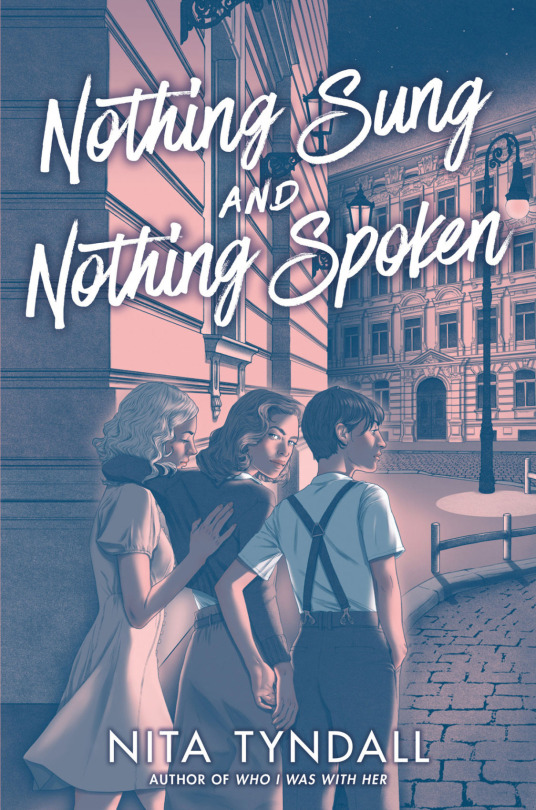
Nothing Sung & Nothing Spoken by Nita Tyndall Find this book near you on WorldCat. Starting in 1938, this book follows Charlie (short for Charlotte), who falls in love with jazz music and other girls in Nazi Germany. Through the war, Charlie's determination to hang onto these illicit, "degenerate" loves under violence and authoritarianism is tested, and relationships change before the war ends...
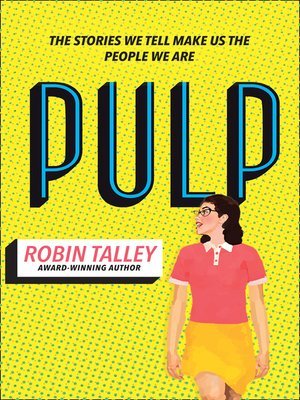
Pulp by Robin Talley Find this book near you on WorldCat. Taking place in both the 1950s and the modern day, main character Abby becomes engrossed in 50s lesbian pulp fiction and becomes determined to find the author of her favorite work who, in her past, deals with similar relationship problems amid the mid-century Lavender Scare.
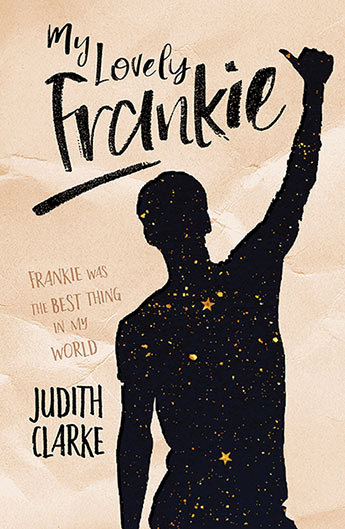
My Lovely Frankie by Judith Clarke Find this book near you on WorldCat. Set in 1950s Australia, Tom feels compelled to join a Catholic seminary, but soon feels himself falling for a fellow student. Looking back on the situation from the modern day, Tom reflects on what love can really mean within Christian religion.
The 1970s
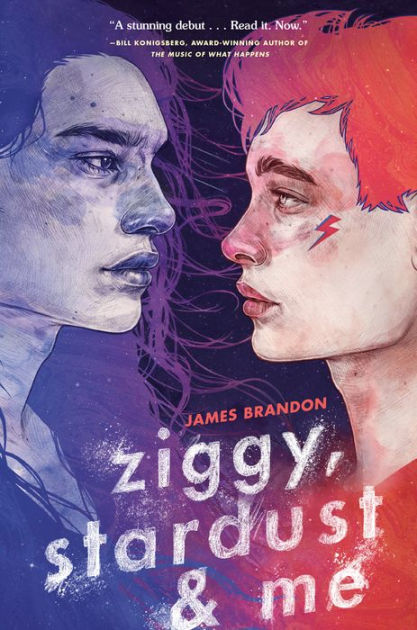
Ziggy, Stardust, & Me by James Brandon Find this book near you on WorldCat. Sixteen-year-old Jonathan is in electroshock conversion therapy just months before “homosexuality” is removed from the DSM. In these volatile times, Jonathan dreams about David Bowie & develops a friendship - maybe more - with a Two-Spirit kid named Web.
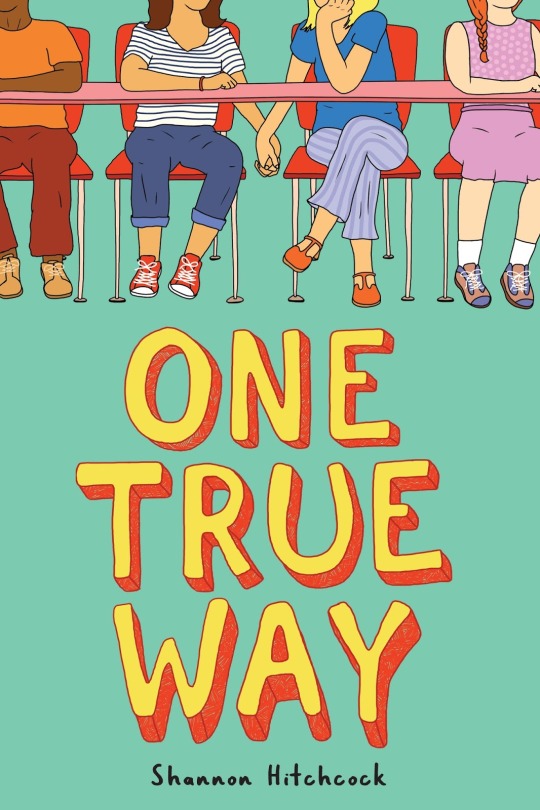
One True Way by Shannon Hitchcock Find this book near you on WorldCat. Aspiring reporter Allie moves to a new town in the late 1970s and develops a friendship and romance with Sam, a fellow middle-schooler. But the town they live in isn't very supportive of the few gay people who live there, leading Allie to try and find support in perhaps unexpected places amid a backdrop of rapid social change.
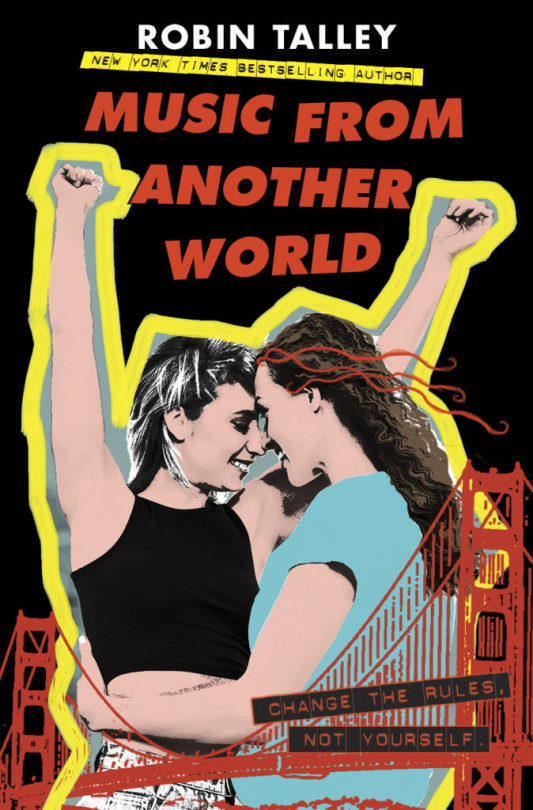
Music From Another World - Robin Talley Find this book near you on WorldCat. Another pick from Robin Talley, this time taking place in the punk scene of 1970s San Francisco. Told largely through letters, two teen girls - both closeted - become pen pals through their schools, and must learn how to rely on each other and their rebellion as the anti-gay backlash in the U.S. grows more and more oppressive.
The 1990s
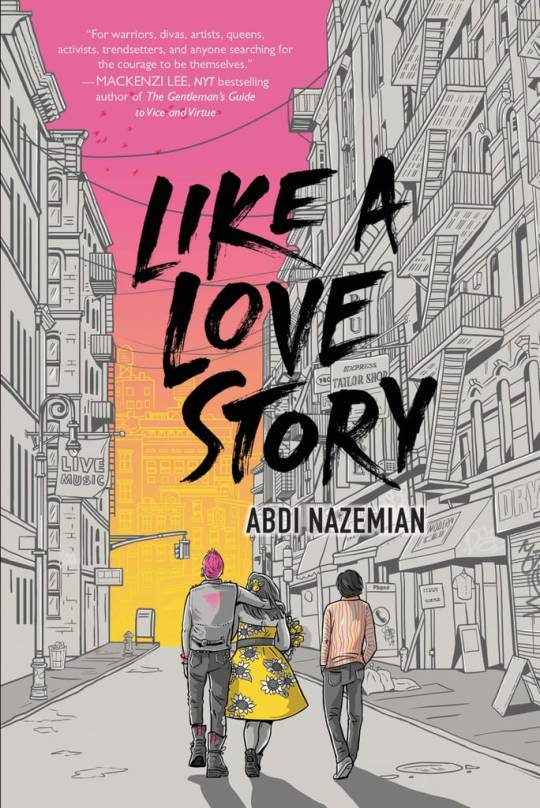
Like a Love Story by Abdi Nazeman Find this book near you on WorldCat. Coming in at the tail end of the 1980s AIDS crisis, Reza is an Iranian immigrant struggling with his fears about being gay and getting sick, while a love triangle develops between a girl crushing on him, Judy - who he only sees as a friend - and an openly gay punk, Art. The trio volunteer for ACT UP, an AIDS advocacy group, as fear, love, and illness makes relationships complicated for all three.
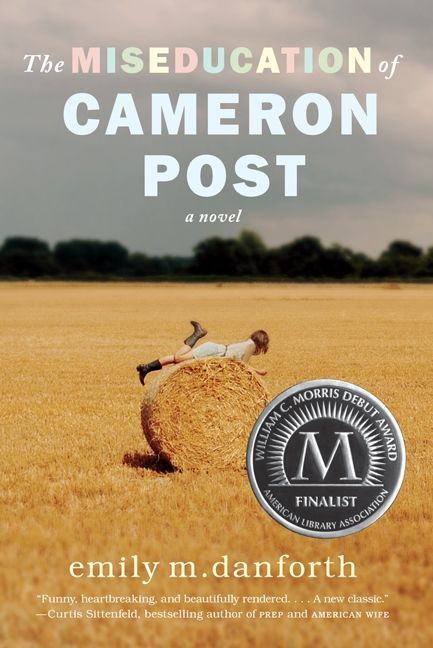
The Miseducation of Cameron Post by Emily M. Danforth Find this book near you on WorldCat. Living with her aunt in Minnesota after her parents' untimely deaths, Cameron has to navigate her love for girls in a strict Christian household - one that, once she's caught, sends her to a conversion therapy camp. There, she must navigate meeting other queer people for the first time, but also come face to face with trauma...
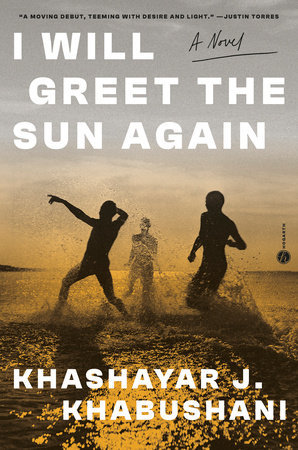
I Will Greet the Sun Again by Khashayar J. Khabushani Find this book near you on WorldCat. K is a teen navigating abuse, the immigrant experience, and blossoming queerness through the early 90s until after the September 11th attacks in 2001. When K and his brothers are taken unexpectedly to Iran by their volatile father, they don't know it's going to be an experience that changes their lives - though it may or may not be for the better.
#literature#young adult literature#book reviews#librarian stuff#my writing#historical fiction#young adult
6 notes
·
View notes
Note
1 18 21
a novel that stabbed you in the heart recently
A Language of Limbs by Dylin Hardcastle! I just finished reading it today and it utterly destroyed me. I started reading it on my rock trip and oh there were some hard-hitting lines but i was reading it at the main library branch in my town waiting for someone and i thought i would be fine to read it in public but no i cried so much while reading it.
it follows the journey of two lesbians in 1970s Australia as they grow up. They almost cross paths in many points of the story and they parallel each other a lot but live very different lives. for most of the book you only know them as 'limb one' and 'limb two' and it explores being queer during the 70's and AIDs crisis.
five stars, ripped my heart out, would recommend
18. what makes you feel jolly
i just like being around my friends because they're super cool. my rock club girlies are so fun to be around
21. what is your favourite tool(in the kitchen, in the lab, in the operation room, in the bathroom, in the craft room, garden, anywhere really)
i already answered and said craft knife but gave no explanation. i just think they're really useful and i use it for a lot of things
3 notes
·
View notes
Note
hi I’m from Australia and I’m just wondering if you can explain the phenomenon of people from “blue states” seemingly wishing death on people from “red states/southern states” cause alot of people I follow are queer/bipoc communist folk from the south and I keep seeing “do not dehumanise us just because we are a red state” and “do not celebrate the hurricane just because it’s happening in the south” and like… do people do this??? I’m almost scared to ask. Cause here in australia even when it takes place in the most conservative part of idk, deep north queensland, something like a bushfire is nationally mourned as a tragedy and people rally to fund rebuilding and rescue efforts. I don’t think ive ever seen someone say “those damn liberal-national voters had it comin” so im so lost at the concept that this is something that apparently happens in USAmerica. Can you possibly explain this? What makes supposedly “progressive” folks so cruel? All the love to you by the way I hope your friends and any family in hurricane affected areas are safe, totally understand if you don’t want to answer the question at this time ❤️
yeah, ill try to explain. thank you for the well wishes, though i am currently fine. im in texas (and not on the coast), so i barely get any hurricane brunt at any time, but i have close friends in the current affected states who i am sending all the love & support i can to. ill put this under a read more because there's a lot to cover.
all americans im sure are the exact same to non americans, but basically due to the civil war about a century and a half ago, there is a big cultural rift between the north and south states - mostly in the east, but western blue (liberal) states definitely fit the northern mindset, and some more northern states along the appalachian mountains are considered southern. because of the grip of slavery on the south before that war, we in the south have never really escaped that history (many songs cite the south as being full of ghosts of history, and god, it is). we are also stereotyped presently as racist dumb redneck hicks. combine those two and you do not garner sympathy.
the thing is that the south is the most diverse area in the entire usa, and there there are a multitude of factors that lead us to being "less advanced" than the north, many of which hinge on that fact. the south has always had a more conservative grip due to the slaveowning elite just evolving to be right wingers nowadays. because we had worse building blocks to start with than the north with its better weather and an economy not built on slaves, we had work to do anyway, but conservatives in office refuse to fix or change any infrastructure. because they want to stay in power, our politicians purposely cut any and all educational funds and preach evangelical teachings so many of us grow up deeply propoganized - though some of us dont or work to break free of that thought process. we are not a monolith. you will find some of the most stalwart leftists here as well as the most violent ring wingers, almost like, we're a massive & diverse group of people. what we believe barely matters though when our politicians gerrymander and ensure county/town lines are drawn in such a way that priveleged votes always matter statistically more than oppressed ones do.
that's where the whole cruel progressives thing comes in. folks in blue areas, the north & canada especially, are blue, yes, but generally neoliberal when it comes to others beyond their purview. there is a smugness that they were born somewhere not haunted by a history of enslavement (ignoring the norths own racism - everyone i know who's moved north says their bigotry is highly noticeable, and slavery is legal everywhere in the country due to an exploited loophole in the 13th ammendment), and born in an area not as "punished by god" (a phrase used by southern pastors often) by natural disaster. every time there is even a modicum of news about a tragic event in a red state - a tornado, a hurricane, a shooting, things that can all happen in their lives too if less often - you will not be able to go near any comment section online or some northerners in reality who will not mock it. we deserve it for choosing to live here (as if we are not the poorest area of the country or as if the south is not also beautiful) and for choosing to vote red. there are occasional times this reverses - southerners love to jump on california's hypocrisy about this when they have earthquakes and fires - but it's not an equal balance. especially not when northern blue folk, who claim to be leftist & therefore compassionate, actively cheer on the deaths of those who could not evacuate because they were poor or desperate, and who make up our largest bipoc & queer populations in the country.
that is where bitterness, anger, and begging others to see southerners as human stems from. there is a lot more history & nuance to it than i can comprehensively express early in the morning, but that is the beginner gist of it. feel free to ask more if something wasnt clear or similar. my home is a mess, and i love it all the same, and my heart aches for my neighbors, and burns at others dehumanization of them and us as a whole. i know it will only get worse as climate change does and i wish we could all stick together instead rather than still drawing these boundary lines like our leaders want us to.
5 notes
·
View notes
Text
BOOKS THAT GIVE ME HOARD VIBES
paradise rot by jenny hval (queer surreal coming-of-age horror, translated from swedish; follows a woman going off to college who enters into an intense relationship with her roommate. lots of talk about religion, rotting fruit, mold, and piss)
carrie by stephen king ("female rage" horror; sixteen-year-old outcast gets her period for the first time and is mocked and further ostracized for it. centers around blood, both menstrual and otherwise. also deals with religious zealotry and child abuse)
on sun swallowing by dakota warren (confessional poetry collection; snapshots of the author's life growing up in rural australia. feral youth and girlhood, turbulent adolescence, more religious trauma, and eating disorders are mentioned)
nightbitch by rachel yoder ("weird girl" lit fic; a new mother has reason to believe that motherhood is turning her into a dog. stream-of-consciousness writing, books within books, and isolation are big themes. mention of animal abuse/death)
my sweet audrina by vc andrews (gothic horror; a seven-year-old girl has the same name as her sister, who died before she was born. her father believes that if she sits in the first audrina's rocking chair, she can gain access to audrina's thoughts, memories, and unspecified abilities. unreliable narrator, fluid passage of time [or lack thereof], and a whole bunch of weird ass untrustworthy characters. more child abuse as well as some ableist language and ideas)
if anyone has any other suggestions, FEEL FREE to reblog or leave them in the replies!!
7 notes
·
View notes